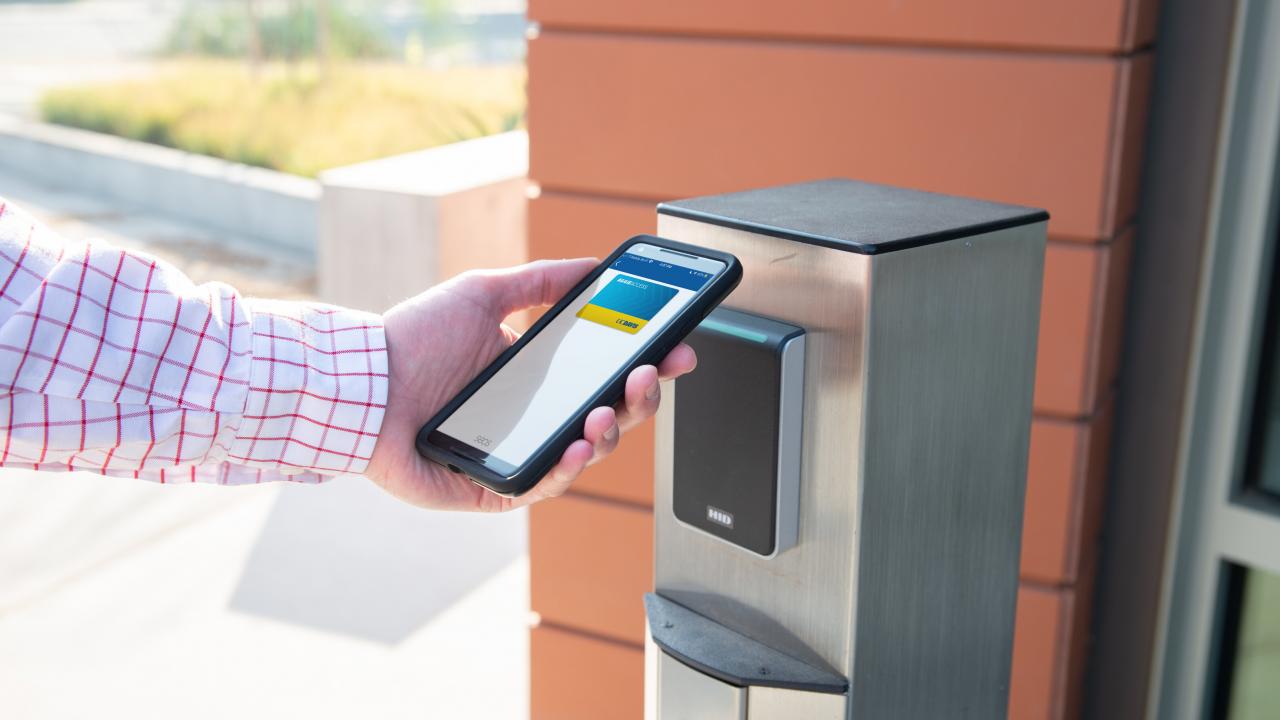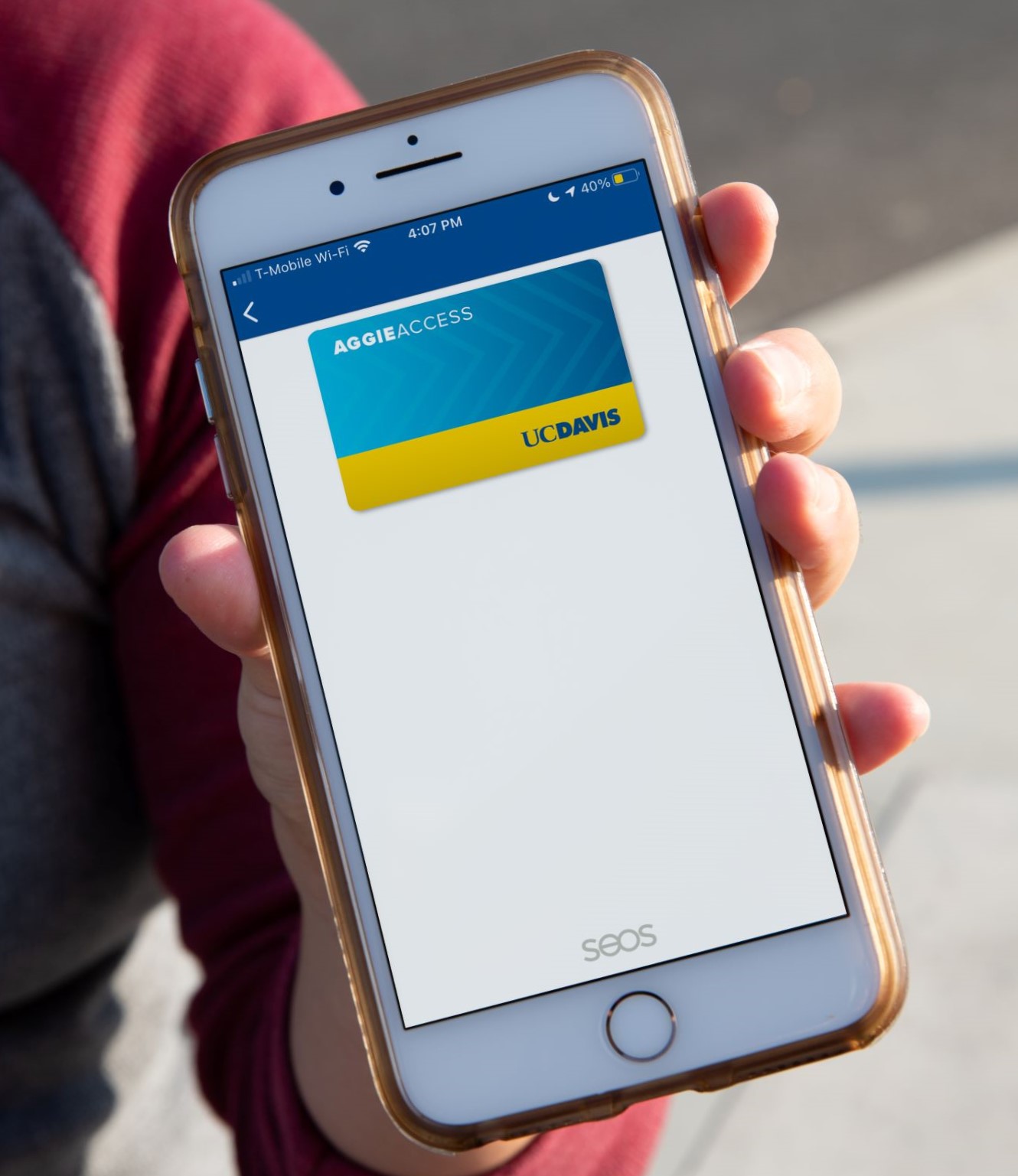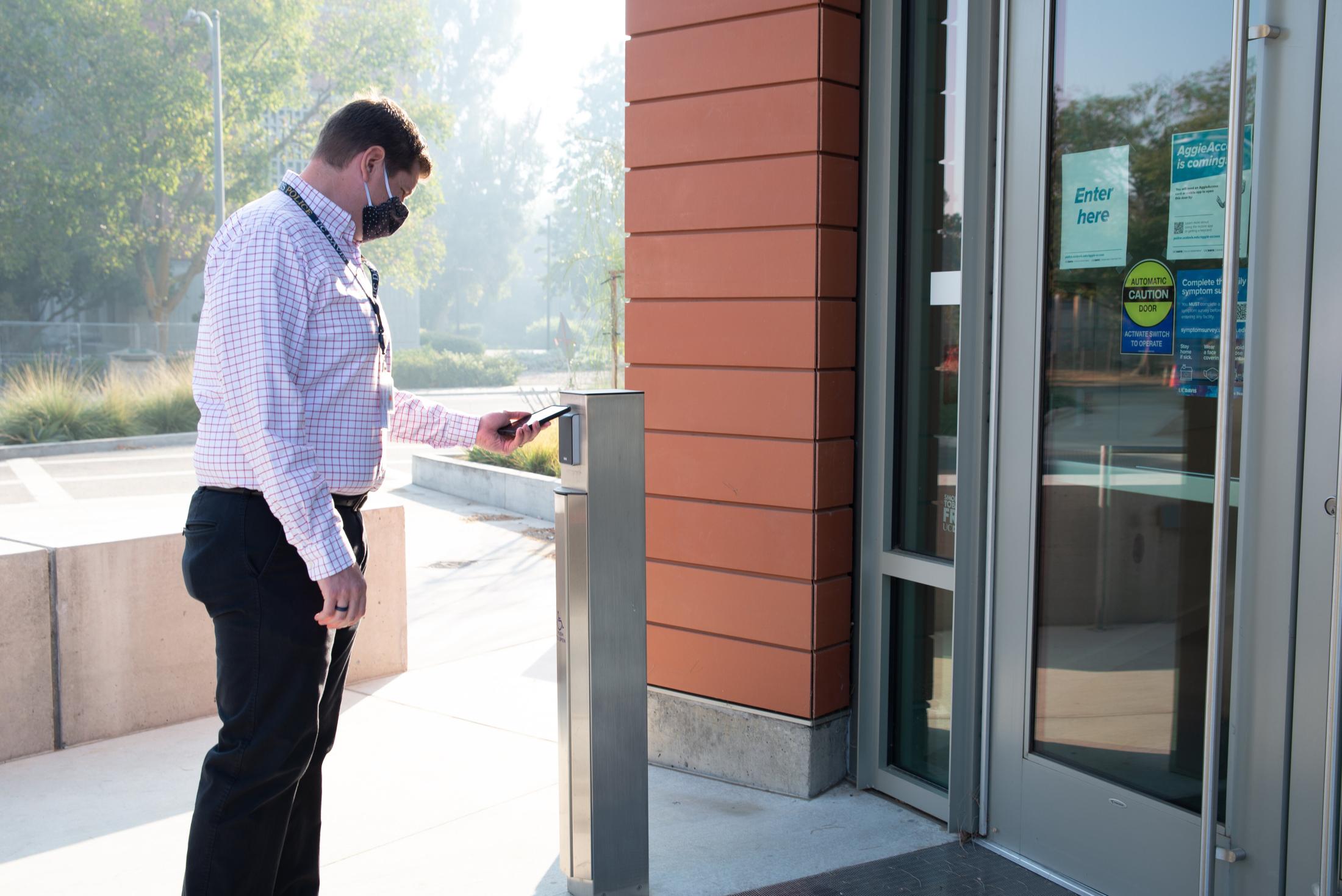
AggieAccess moves forward, goes mobile
AggieAccess — UC Davis' new electronic entry system — is making access to rooms and buildings easier and more secure by consolidating entry systems and launching a mobile credentials program that turns a smart phone into a digital key card.
The UC Davis campus has long had a variety of electronic access systems with hardware and software that varies between buildings. With the new AggieAccess electronic access system, this is about to change.
“Faculty, researchers, operations staff— we all may need need entry to multiple secure locations. Each door has its own card and usually a different security system,” says Jeff Rott, director of physical security systems for the UC Davis Police Department. “Under AggieAccess, cardholders will be able to use their credentials to access all of the spaces where they have permissions.”
In the coming year, 146 locations across campus with existing electronic key card readers that secure interior spaces, like labs and offices, will be upgraded to AggieAccess, a new, centralized system.
AggieAccess goes mobile

In addition to introducing an upgraded electronic access infrastructure, AggieAccess is introducing a new electronic access method—mobile credentials.
“Currently, key cards are the only way to gain access to an electronically secured area on campus,” Rott said. “But AggieAccess is inviting users to go cardless and use their phones instead.”
Mobile credentials will allow users to access areas using their smart phone in place of a key card through the HID Mobile Access app.
Before AggieAccess is installed in a new location, cardholders for that location will receive an email inviting them to activate their AggieAccess mobile credentials. Setting up the credentials is as simple as downloading the HID Mobile Access app onto a mobile phone and entering the unique code provided in the email.
“One benefit of introducing mobile credentials is distribution. It is a lot simpler than with physical key cards, especially given social distancing requirements and reduced operations,” Rott said.
Mobile credentials will be distributed through email, which will include instructions on how to download and use the credentials and a unique invitation code. Emails will also provide cardholders an opportunity to request a physical key card.
“While everyone will receive an email invitation for mobile credentials, anyone can opt for a physical AggieAccess card instead,” Rott said.
Looking forward

While a majority of AggieAccess construction will only affect current cardholders, there are a few notable exceptions. This fall AggieAccess hardware was added to the main entries of the following buildings: Bainer Hall, California Hall, Dutton Hall, Kemper Hall, North Hall, Olson Hall, Plant and Environmental Sciences, Shields Library, South Hall and Wellman Hall.
For the time being these buildings are largely closed to the public due to campus operating at a reduced capacity and COVID-19-related safety protocols. Access to most of these buildings is currently limited to those working in the buildings, who will receive credentials this month.
When these buildings do open to the campus community, anyone who requires access to any of the buildings will need AggieAccess credentials. Before this switch is made, every employee and student at the Davis campus will receive an email inviting them to download mobile credentials, which will grant them access to these buildings during regular hours.
Working together to streamline building access
To enable the campus to shift from multiple different card readers to AggieAccess, extensive coordination is required. From installation of new hardware to distribution and management of new credentials, Aggie Access involves the work of multiple units to support the implementation at each building.
“AggieAccess is really a campuswide effort,” says Susan Collopy, a Design and Construction Management project manager for AggieAccess. “The Police Department, AdminIT, Facilities Management, the Lock Shop, Shared Services, IET, committee and workgroup members—the project is only possible because of the hard work of all these people and units.”
These efforts will result in a more streamlined experience for cardholders and new security features for the campus.
“With AggieAccess, all the systems will be connected to our communications center, allowing us to respond more quickly and effectively to a security incident,” Police Chief Joe Farrow said. “In addition, this update ensures our campus is in compliance with policies related to electronic security systems.”
AggieAccess adheres to UCOP IS-3 criteria, based on international standards for information security. It also provides increased record retention controls.
The transition to AggieAccess is already underway. Construction started in November at the first batch of buildings in a staged implementation plan that will continue through 2021. As AggieAccess is rolled out, the new mobile feature will soon be available.